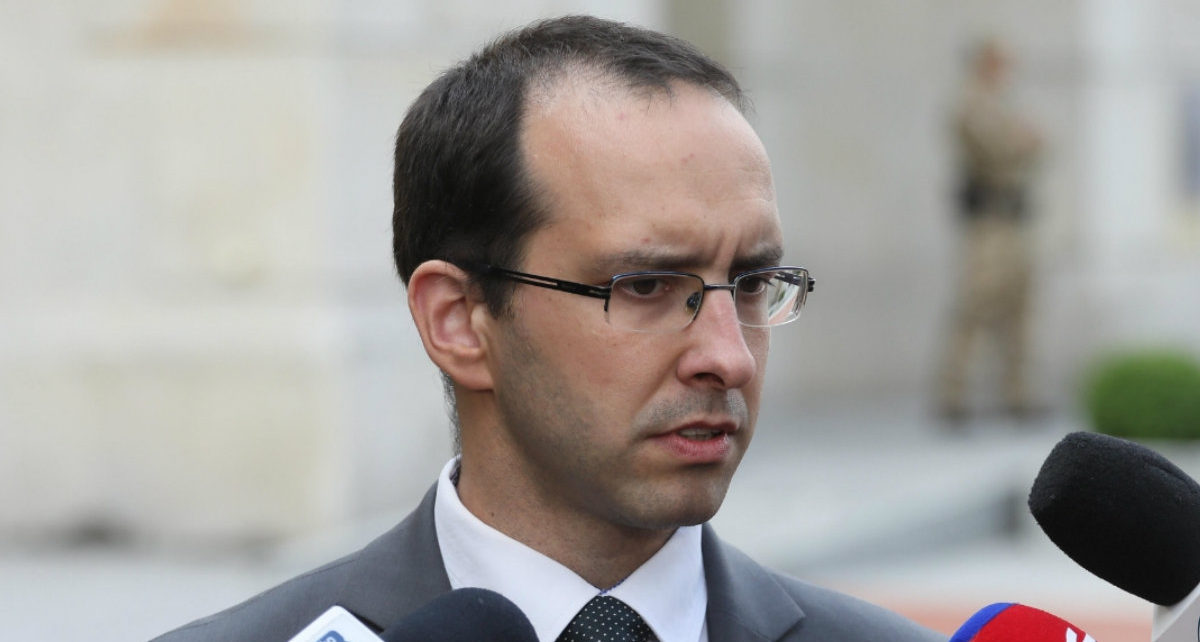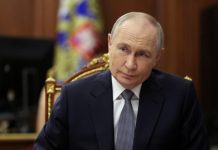By Stanisław Żaryn, for StopFake
Since the very beginning of the Russian invasion against Ukraine, hostile propaganda, disinformation and hybrid actions have been a component of warfare. In recent months, information attacks have been waged not only against Ukraine, but also against NATO countries and the West. In its actions targeted at the West, the Kremlin applies methods under the threshold of war, but it does not mean though that we may underestimate such efforts.
For many years Russia has been developing its capacities of carrying out aggression with methods below the threshold of an open military conflict. In this way, over the past years it has attacked many countries. Russia is using such methods also against the West, in particular focusing on the combat with NATO and its member states. Since February 2022 Russian hybrid warfare has been intensified. Currently it must be identified as complementary to the actions carried out against Ukraine. Russian information attacks targeted at the West need to be perceived as an element of the aggression against Ukraine. This is how we identify and understand Russian actions in Poland which for months has been one of the main targets of the Russian hybrid activity.
Russian specificity
For Moscow, hybrid actions are a very convenient tool and they constitute a typical Russian modus operandi. We have to bear in mind that the Russian Federation’s policy – both in its military and diplomatic aspect – is based, to a major extent, on different forms of indirect actions, behind the scenes and, at the same time, on avoiding an open confrontation if possible. The Russian concept of „net war” consists in exerting long term and regular impact designed to rebuild the structure of social awareness and forming it according to the Kremlin’s interests. These actions, although often neglected, are immensely dangerous, as they lead to a stimulated, hostile formation of the social opinion and moods in the domains that are of key importance to Russia. These efforts are controlled and dictated by the Russian special services, which define actions within the scope of information warfare against the West.
The effectiveness of such measures is visible in processes of reorienting social awareness – for example from pro-Western, pro-democratic attitudes into pro-Russian ones. Ambivalent attitudes and social divisions (supporting integration with the EU while postulating the dialogue with Russia) strengthen such phenomena. These processes are amplified in turn with tools and institutions (business entities, NGOs, foundations) used as Russian proxies. The objective of inspiring these structures to step up officially (for example through legislative initiatives) is to reformulate not only social judgements, but also to achieve specific legal and formal changes in the sphere of the functioning of a state.
The nature of hybrid actions shows that their aim is to destabilise states. In recent years we have witnessed Russia’s attempts to carry out a political putsch (in Montenegro), organise political and terrorist assaults (Great Britain, Czech Republic, Germany) or to use energy pressure in order to destabilise domestic situation (Moldova, Ukraine). During such operations, Russia applies a full range of tools. It also constantly tries to use hybrid methods in order to radicalise social attitudes in attacked countries. The Kremlin fuels social conflicts and manage social emotions. Russian special services, by manipulating extremist groups, NGOs or even high-ranked public officials, stir up divisions while simultaneously authenticating its narratives with opinions of „independent” experts, cited by media outlets.
Informational overture
Hybrid actions, including propaganda, may also result in an open military attack. The case of Ukraine indicates that Russia very often is carrying out a hybrid campaign for years, as a prelude to the attack. Currently, the Russian propaganda is persuading that the war is „a special operation” (this is how Russia describes the invasion against Ukraine) whose aim is to liberate Ukraine form „neo-Nazi authorities in Kyiv”. The Russian propaganda is based on falsehoods that for years have been spread against Ukraine. First false claims concerning the supposed „Nazi authorities in Kyiv” were identified already in 2013. Since 2014, which was the Ukrainian Maidan, the Kremlin has regularly organised information campaigns against Ukraine, accusing it of totalitarian connotations and crimes. Lies repeated for years as a part of a hybrid campaign became informational foundations for propaganda that now is justifying the invasion in Ukraine. Hybrid actions conducted regularly for years may trigger circumstances that are supposed – even for the purposes of internal propaganda – to enable Russia to start a war. It proves also that Russian hybrid warfare must be analysed through the prism of national security of the countries that are under hybrid pressure.
This is how we perceive Russian activity in Poland. Poland became a target of Russian hybrid actions long before 24 February 2022. Russia has conducted its disinformation campaign against Poland for many years, intensifying it ever since the NATO eastern flank was strengthened in 2016. In 2021 Poland was a target of the Kremlin’s hybrid aggression, when, together with the Lukashenko’s regime, Russia organised a route of illegal migration that until now is destabilising our border with Belarus. Today Poland is under high pressure of information and hybrid actions, that must be identified as the Russian activity that is hostile towards Poland.
Stopping the aid for Ukraine
Polish-Ukrainian relations remain the most important field for Russian propaganda against Poland. The Russia’s objective is to spark conflicts between Poles and Ukrainians, both at the state and social level. The Kremlin counts that the lack of trust between Poland and Ukraine will result in cutting Ukraine off the aid coming from Poland and the West (that is also provided through Poland’s intermediary), which will enable Moscow to carry out military actions against Ukraine much quicker. Russia is also trying to slander Poland in the international arena, counting for the same effect – Moscow wants to isolate Poland in order to make Ukraine left alone, but also to deprive Poland of influence on the political agenda of the Russia-West relations. Attempts to stir up radical circles and to destabilise public debate are also a constant element of influencing the Polish society. This element serves to polarise the society, which is meant to enable Russia to manage emotions and destabilise the state life in Poland.
Apart from typically information actions, also cyber-attacks and operations of managing fear, including energy and nuclear blackmail, belong to the spectre of tools applied against Poland. Russia is very willing to incite fears and social unrest related to the perspective of radioactive contamination and shortages of energy supplies. Through such means Russia also may influence how particular audience perceives reality or even what decisions are made.
Russian hybrid operations, thanks to their nonstandard character and unlimited instruments are efficient in actions against European countries as they enable to elastically escalate tensions and, simultaneously, to avoid an open conflict, thanks to which the Russian authorities may dismiss accusations of aggression or withdraw anytime needed.
We should remember that for the Russian Federation, the objective of all kinds of hybrid actions remains to destroy institutional unity – as far as a state or an organisation (NATO, EU) is concerned, as well as to broaden the sphere of Russian influences. It is though only a preparation to further acts of aggression – non-military (economic, diplomatic) and military one. Russian actions – notwithstanding methods and tools – serve strategic objectives of the Kremlin. And they remain and will remain hostile not only towards Ukraine, but also the whole West. Today Russia is a threat. And it must be treated so by the NATO member states.
By Stanisław Żaryn, for StopFake
Stanisław Żaryn is the Government Plenipotentiary for the Security of Information Space of the Republic of Poland.





